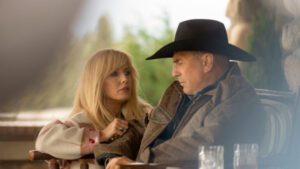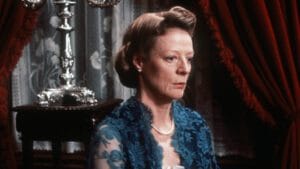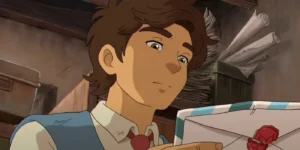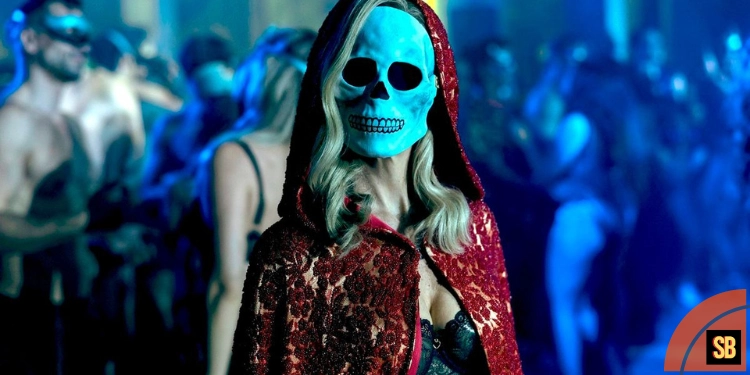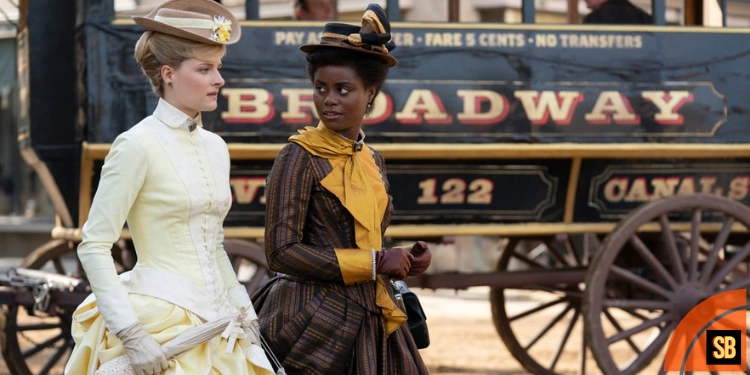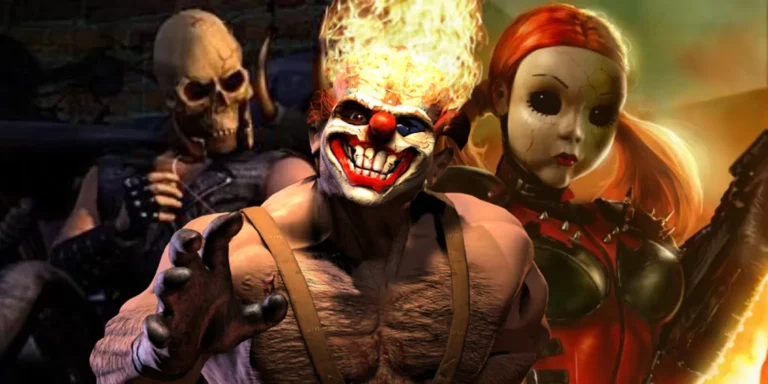It’s official, The House of Usher has fallen, and the ending moments of Mike Flanagan’s The Fall of the House of Usher have left us with answers to some burning questions about the Usher clan. How did Roderick and Madeline Usher (played by Bruce Greenwood and Mary McDonnell) come to control Fortunato Pharmaceuticals? What murder was Roderick going to confess to attorney Auguste Dupin (Carl Lumbly)? And what’s the deal with the enigmatic Verna (Carla Gugino) and her role in the Usher family’s misfortunes?
All these questions find their answers in a pivotal moment of Usher history: New Year’s Eve, 1979. As Roderick finally reveals the events of that fateful night to Dupin, the pieces of the Usher family’s mysterious puzzle fall into place. Let’s take a closer look at the House of Usher’s final moments and the literary inspirations behind them.
A Nod to Edgar Allan Poe’s “The Cask of Amontillado”
From the start of the series till the ending, The Fall Of The House of Usher draws inspiration from the writings of Edgar Allan Poe. The finale, aptly titled The Raven after Poe’s renowned poem, continues this tradition. The narrative borrows a key sequence from another Poe classic, “The Cask of Amontillado.”
In Poe’s 1846 story, the narrator Montresor executes a murder plot that involves luring his rival, Fortunato, into a wine cellar under the pretense of fine wine. Montresor then walls him up deep within the catacombs, ensuring that his victim’s body is never found. This sinister plot is strikingly similar to how a young Madeline and Roderick Usher (played by Willa Fitzgerald and Zach Gilford) dispose of Rufus Griswold, the CEO of Fortunato Pharmaceuticals, on that New Year’s Eve in 1979. They drug him with cyanide-laced Amontillado before walling him up in the under-construction Fortunato basement. The New Year’s setting mirrors the festive Carnival in “The Cask of Amontillado,” with both stories featuring their victims wearing fool’s motley to celebrate.
The series foreshadows this critical Poe allusion, from the name of Fortunato Pharmaceuticals to Roderick’s haunted memories of Rufus and the unmistakable connection to “The Cask of Amontillado.”
A Deal with a Demonic Twist
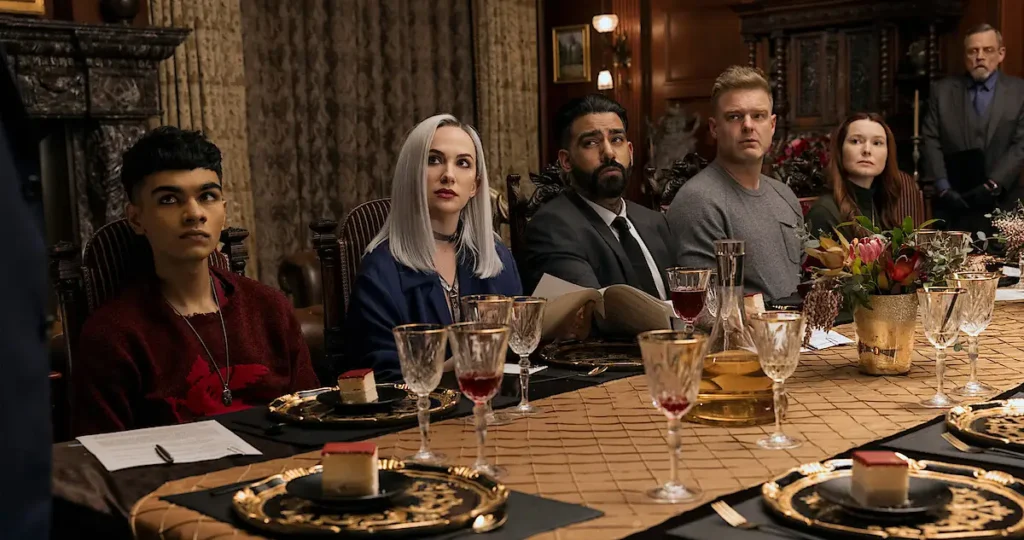
As the series established earlier, Roderick and Madeline leave the murder scene of the Fortunato New Year’s Party to establish an alibi. They find themselves at a bar owned by Verna, whose true nature remains shrouded in mystery. It’s evident that Verna is a being intrigued by humans’ capacity for evil, which the Ushers have shown in abundance. Verna offers them a Faustian deal: unparalleled success in exchange for the complete eradication of the Usher bloodline upon Roderick’s death.
Roderick is poised to become the CEO of Fortunato, thanks to betraying Auguste’s attempts to prosecute the company. Once that happens, Madeline and Roderick are free to pursue their desires without facing any consequences. However, the younger Ushers will pay the price. When Roderick nears death, all Ushers, including Madeline, will meet their end.
Madeline tries to find a loophole by encouraging Roderick to overdose, thinking this might end their suffering. But Verna proves unyielding. She revives Roderick and continues her work, emphasizing that there’s no escaping consequences.
The Bargain’s Implications
Back in 1979, Roderick and Madeline accept Verna’s deal. They get everything they desire, but there’s a catch – a demonic bargain looming over them. They must decide between a shorter life of luxury and a longer life filled with uncertainty. Despite the allure of luxury, the constant reminder of their impending doom makes it a living nightmare.
The bargain with Verna provides insight into the Usher family’s dynamics. Roderick, aware that his family will perish with him, seeks ways to extend their lives, notably through Victorine’s heart mesh research. Madeline, who has no children tied to her fate, focuses on her own path to break free from Roderick’s influence, delving into research on algorithms and sentient AI versions of humans.
The Ultimate Downfall of the Usher Family
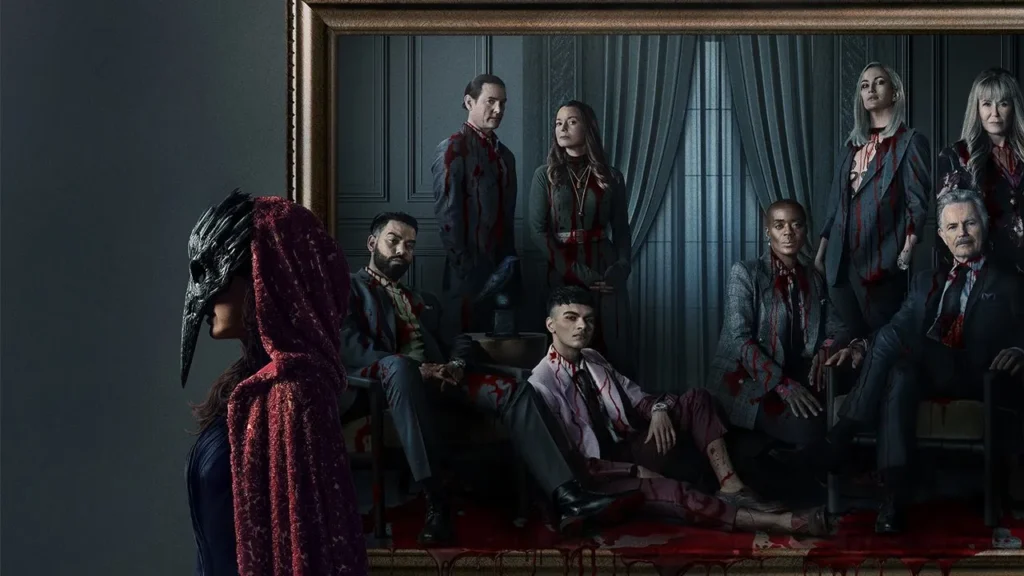
“The Raven” reveals that Madeline’s plan for virtual immortality would never have succeeded. Her creation, the “Lenore bot,” is a reference to Poe’s poem “The Raven.” This bot can only repeat “Nevermore,” a word from the poem. Real Lenore’s death is disclosed, which shocks Roderick and underscores the theme of grief and loss.
The Usher family is further plagued by tragedy. Lenore dies peacefully, and Verna delivers the news that Morella will recover from her burns and create the Lenore Foundation, a non-profit to help millions. Juno inherits Fortunato Pharmaceuticals, dissolves it, and establishes a foundation for rehabilitation programs. These acts of kindness from outsiders within the Usher family contrast with the corruption of the Usher dynasty.
The Usher Family’s Last Moments
With Lenore and all Usher children gone, Roderick and Madeline are the last survivors. In the basement of their decaying house, Madeline confronts Roderick, criticizing consumerism. Roderick, however, poisons her, and Madeline embalms her like an Egyptian queen. This dark rite reflects the Usher family’s fate, with references to Poe’s “Some Words with a Mummy.”
Auguste, who barely escapes, witnesses the house’s collapse. Verna presides over the wreckage. The consequences have come full circle.
In the ending moments, The Fall of House of Usher concludes with Verna visiting the Ushers’ graves, reciting Poe’s “Spirits of the Dead.” This elegy pays homage to the fallen Ushers, bookending the series with Poe’s words.

